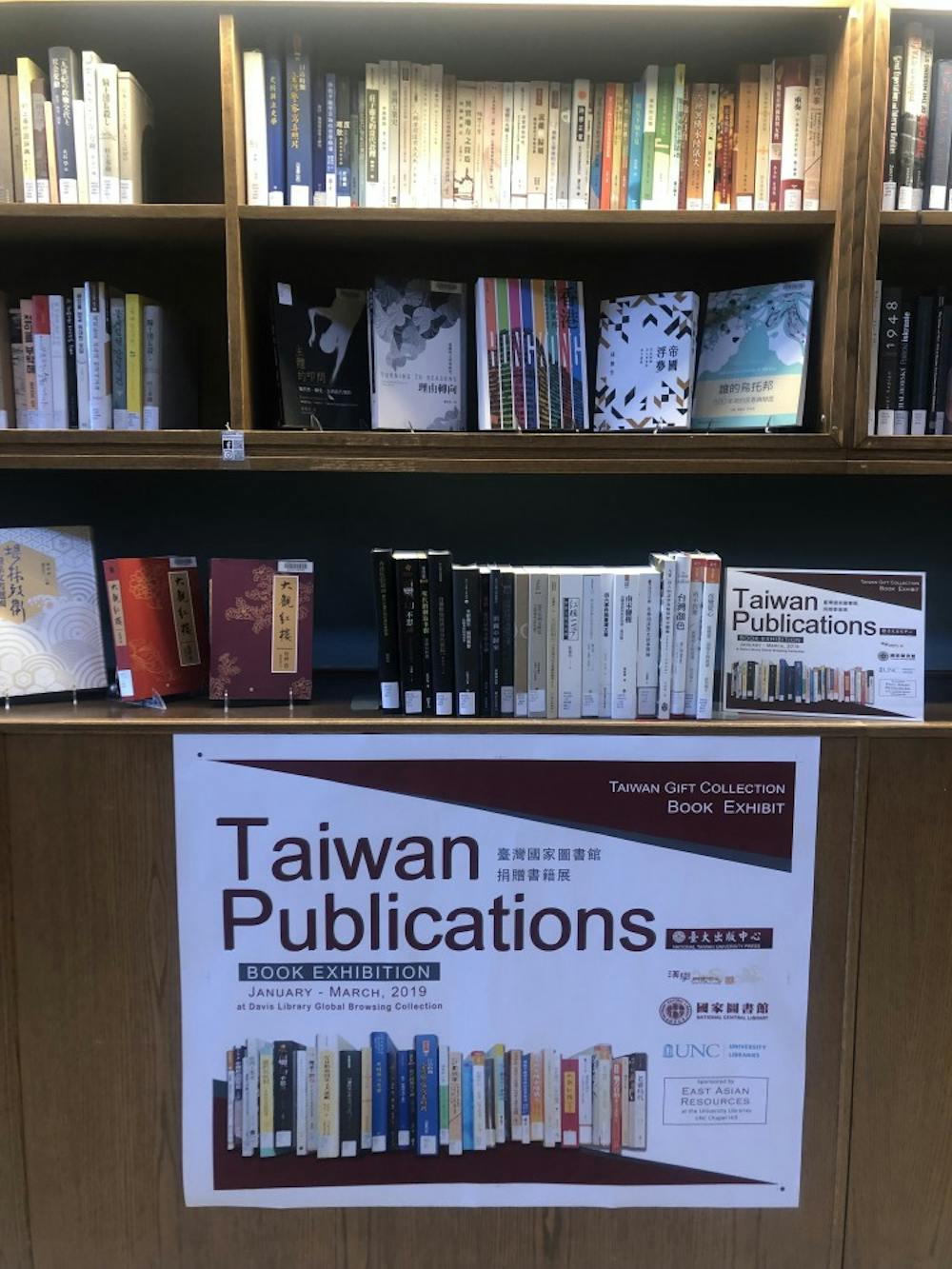The Taiwan Publications Book Exhibit is featured in Davis Library from January to March. The books, written in Chinese, were donated by the National Central Library at the 2018 Asian American Studies Conference. The conference was held in Washington D.C., and each year, members of the National Central Library choose a large university to donate books to.
Many of the Chinese books in Davis Library are mixed in with all different languages across many subjects.
“I read different texts in different languages. In English, I read academic articles better, but that’s because I have been getting an education since high school in an English-speaking country,” first-year student Cher Hu said. “So really, academic article-wise, it’s easier for me to do in English. However, my general reading speed is much faster in Chinese. It's more comfortable.”
Cher Hu is a student from mainland China, who speaks both English and Chinese. She’s a political science and statistics major.
The East Asian Collection at Davis Library is one of the smallest departments in the library. East Asian Studies librarian Hsi-chu Bolick and Asian Studies professor Uffe Bergeton went to the conference in Washington D.C. to accept the donation.
“Their access to diverse material can establish and can help them do a lot more independent thinking than a lot of teaching and education that they're receiving in their own country,” Bolick said.
Hu said that the effect of being able to read in your first language provides a “homey” sensation as the difference between English and Chinese isn't just the language but also the culture.
“I think more than being uncomfortable language-wise, I’m more uncomfortable culture wise most of the times just because American culture and Korean culture are so drastically different,” said first-year linguistics and Korean major Christina Oh.
The difference in cultures can also create a divide between students. At Carolina Kickoff, Ho said that many of the people she met thought she was an international student. Being “fresh off the boat” is something Oh described as something she didn’t want to be. The stigma around this is something Oh felt as a part of the Carolina community.



